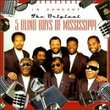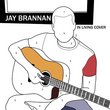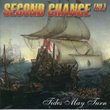| All Artists: Franck, Daniel Barenboim, Ernest Ansermet Title: Franck: Redemption; Nocturne; Le Chasseur Maudit; Psyche; Les Eolides [Australia] Members Wishing: 1 Total Copies: 0 Label: Eloquence Original Release Date: 1/1/2005 Re-Release Date: 5/30/2005 Album Type: Import Genre: Classical Style: Number of Discs: 1 SwapaCD Credits: 1 UPC: 028947628002 |
Search - Franck, Daniel Barenboim, Ernest Ansermet :: Franck: Redemption; Nocturne; Le Chasseur Maudit; Psyche; Les Eolides [Australia]
![Franck: Redemption; Nocturne; Le Chasseur Maudit; Psyche; Les Eolides [Australia]](https://nationalbookswap.com/cd//l/99/0599/6150599.jpg) | Franck, Daniel Barenboim, Ernest Ansermet Franck: Redemption; Nocturne; Le Chasseur Maudit; Psyche; Les Eolides [Australia] Genre: Classical
|
Larger Image |
CD DetailsSimilar CDs
|
CD ReviewsFranck the Wagnerian Sensualist M. C. Passarella | Lawrenceville, GA | 07/19/2006 (5 out of 5 stars) "For Franckophiles, this disc represents an inexpensive way to savor a part of Franck's output that, if it isn't altogether neglected as the liner notes suggest, is underrepresented on disc and in concert halls. Like all instrumental composers living in France who followed in the footsteps of Berlioz and had a penchant for the Wagnerian, Franck tried his hand at symphonic poems--and with surprisingly varied results. At one end of the spectrum is Le Chasseur Maudit, with its grotesque program conveyed through a huge Wagnerian orchestral palette. To this end of things you can add the rather bloated symphonic poem-oratorio combinations Redemption and Psyche, as well as the bizarre but interesting tone poem/concert piece with obbligato piano Les Djinns. Far, far to the other end of the spectrum is Franck's delicate little gem Les Eolides based on a neoclassical poem by Leconte de Lisle concerning the daughters of Aeolus, god of the winds.
The performances by Barenboim and the Orchestre de Paris tend to emphasize the brashness and pomposity inherent in Le Chasseur Maudit and the orchestral interlude from Redemption, which is all we usually hear from that work. Such an emphasis works well here; Franck is too often thought of as an overly pious academic, but he had a deeply passionate side that shows up most remarkably in the famous Piano Quintet. Likewise, the moment when the Accursed Huntsman sets out on his hunt despite his neighbors warnings, and with the church bells tolling magnificently in the background, is a sensuous feast of orchestral sound. Ditto the jubilant, bell-like brass writing in Le Jardin de Eros and the radiant yet rarefied love music of Psyche et Eros: This is an interesting and compelling side of Franck that is as worth knowing as the Franck of the Violin Sonata and Symphony in D Minor. The Orchestre de Paris plays the music of their adopted countryman with gusto, with none of the unctuous mellifluousness of, say, the Orchestre de Montreal. And Barenboim lets his players get a little, well, vulgar, which isn't a bad thing in this frankly (Franckly?) sensuous music. Pscyhe is especially successful. I doubt I've ever enjoyed this delightful music as much as I do in Barenboim's performance. In Le Chasseur Maudit, Barenboim tends to luxuriate a bit too much over the slower passages, and some of the tempi early on are questionable, though the piece works up to a fine and furious climax. And the digital remastering of DG's analog recording is truly striking: I hear details of Franck's lush orchestration that I've never heard before on disc. You have to hear every chime of those tubular bells in Le Chasseur Maudit, or what's the point? Franck's song "Nocturne," orchestrated by Guy Ropartz, is a lovely, jewel-like pendant, radiantly sung by Christa Ludwig, she of the big voice and equally big heart. It's a tribute to those responsible for remastering this disc that Ansermet's 1967 recording of Les Eolides sounds just about as fine as the excellent recording Barenboim got in Paris nine years later. Working with his less-polished orchestra, Ansermet nonetheless produces satisfying results, capturing all of the subtle shades of emotion in this very attractive piece. So here it is: 71 minutes of sensual orchestral pleasures from the man they called Pater Seraphicus." |

 Track Listings (5) - Disc #1
Track Listings (5) - Disc #1


